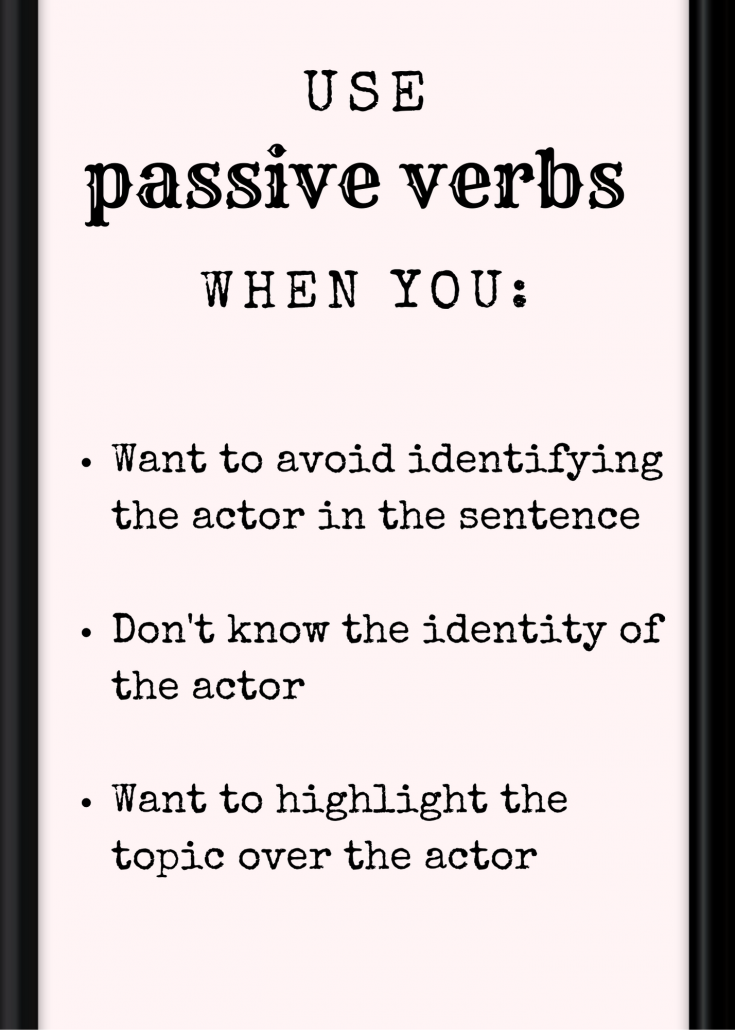3 times to use passive verbs in your writing
I usually slash passive verbs in articles that I edit. (Don’t know what a passive verb is? Read this.) But sometimes I leave them in place. When? When the sentence should emphasize the person or thing that the verb is acting on. Or, when you don’t want to identify the person or thing that is taking an action.
Use the passive voice in the following three instances.

1. When you want to avoid identifying the actor
Imagine that you’re communicating with a client who mistakenly deposited money into the wrong account. Do you want to emphasize the client’s mistake, as if to say, “Hey, stupid, you put money in the wrong account”? No, it’s better to say, “Money was deposited in the wrong account,” and then describe how to fix the problem.
A classic example of failing to identify the actor is the sentence: “Mistakes were made.” Sentences like that make me want to shake the author. I want to yell, “Tell me who made the mistake!” I sometimes see such sentences in descriptions of investment underperformance. I don’t agree with that approach. I think it’s better to identify the reason for underperformance and say what you’re going to do about it. I discussed that in “Four lessons from Wasatch Funds on reporting underperformance.”
2. When you don’t know the identity of the actor
Sometimes the problem with active verbs isn’t that you don’t want to identify the actor. It’s that you don’t know what the heck caused the action. For example, “The price of PQR stock was depressed.”
Perhaps that’s a bad example because you can usually find a pundit to opine on the reason for a stock price movement. However, perhaps you want to be honest about your not really knowing the reason for the stock price decline.
3. When you want to highlight the topic over the actor
Sometimes the actor is less important than the subject that it’s acting on. For example: “The conditions are forming for a dramatic decline in stock prices.” In this case, the factors driving the decline are less important than the imminent decline.
Stay active most of the time
Despite the fact that passive verbs are sometimes appropriate, please go easy on using them. Active verbs are usually better.
